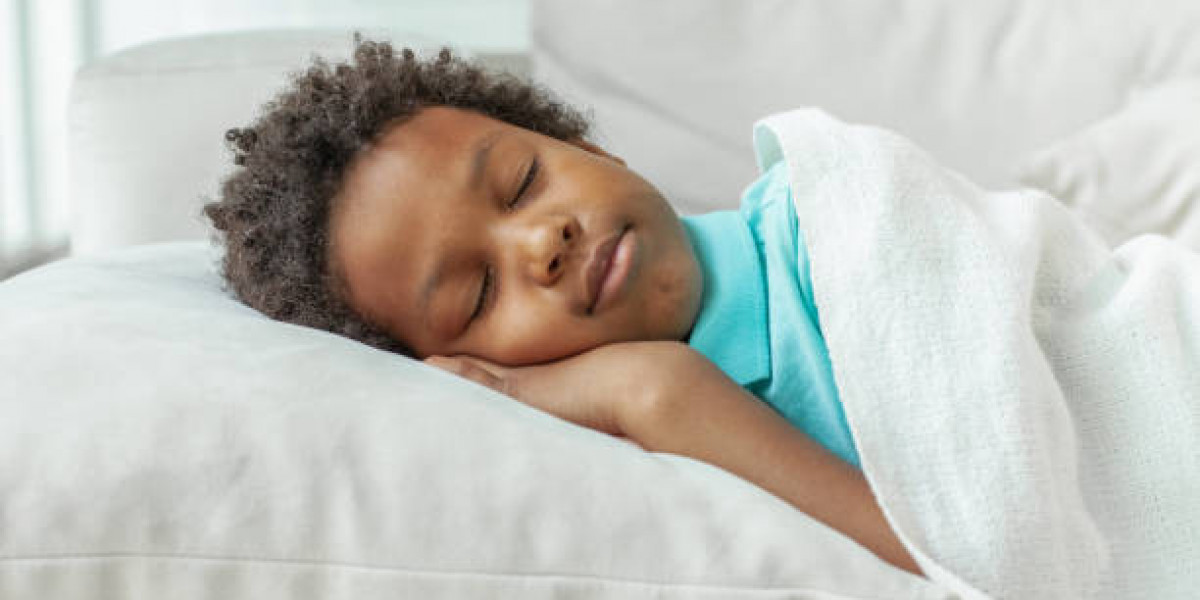Rest is vital to emotional and physical recovery—particularly for teens in the midst of trauma. Alas, childhood trauma and sleep issues can completely derail a teenager's rest, so they suffer insomnia, nightmares, night terrors, and exhaustion. As a parent, it can be heart-wrenching to see this happen. But don't despair.
In this article, we discuss why trauma disrupts teen sleep, how to identify the signs, and how parents can assist their teens in sleeping better and healing further.
Why Trauma Disrupts Teen Sleep
When a teenager goes through trauma—abuse, loss, neglect, bullying, or an accident—their nervous system goes into survival mode. This triggers the brain's fight-or-flight mechanism, making it difficult to relax even while sleeping.
Biological impact of trauma on sleep:
Amygdala hyperactivation increases fear and anxiety
Cortisol surges delay sleep onset
Disrupted REM sleep leads to poor emotional processing
Nightmares replay trauma memories
These neurological responses often manifest as sleep resistance, night waking, and panic at bedtime.
Signs Your Teen’s Sleep Is Affected by Trauma
Many teens won’t talk openly about their trauma or sleep issues. Look for these warning signs:
Difficulty falling or staying asleep
Frequent nightmares or night terrors
Fear of the dark or sleeping alone
Daytime fatigue or irritability
Avoidance of bedtime routines
Sleepwalking or talking
If these symptoms persist, it’s time to take supportive action.
1. Create a Safe and Predictable Bedtime Routine
Traumatized teens require order and control in order to feel safe. A calming bedtime ritual assures the brain that everything is all right and it is safe to calm down.
Ideas for a trauma-informed bedtime routine:
Dim lighting and quiet music
Aromatherapy with lavender or chamomile
Reading calming books (non-triggering content)
Journaling or “brain dumping” worries
Meditation or grounding exercises
Encourage them to follow the same routine each night, ideally starting an hour before sleep.
2. Design a Calming Sleep Environment
Adolescents with PTSD or trauma tend to be hypersensitive to noises, light, and touch. Design a calm bedroom that minimizes triggers.
Sleep-friendly room tips:
Blackout curtains and sound machines
Weighted blankets or soft textures
Night light if they fear the dark
Remove clutter and potential stressors
Let them personalize their space
Empowering your teen to design their space helps them regain a sense of safety and ownership.
3. Teach Grounding Techniques for Nighttime Anxiety
Grounding tools can help teens manage anxiety spikes or flashbacks at bedtime.
Helpful techniques:
5-4-3-2-1 technique: Focus on senses (see, touch, hear, smell, taste)
Box breathing: Inhale-4, hold-4, exhale-4, hold-4
Progressive muscle relaxation: Tighten and release each body part
Safe place visualization: Imagine a peaceful, comforting location
These tools restore calm and help redirect the brain away from distress.
4. Foster Open, Judgment-Free Communication
Teens with trauma often feel isolated. Create space for them to talk without fear of judgment or pressure.
What to say:
“I’ve noticed your sleep seems off. Want to talk about it?”
“It’s okay to feel scared or anxious at night.”
“I’m here for you—whenever you’re ready.”
Avoid minimizing their experience with phrases like “Just get over it” or “Everyone struggles to sleep.” Instead, validate their feelings and offer gentle support.
5. Limit Triggers Before Bedtime
Content and stimulation right before bed can intensify sleep struggles in teens with trauma.
Avoid:
Violent or emotionally intense TV/movies
Heavy social media scrolling
Arguments or tense discussions
Caffeine or energy drinks in the evening
Replace screen time with soothing alternatives, like art, reading, or journaling.
6. Encourage Physical Activity and Daylight Exposure
Movement and natural light regulate circadian rhythms and reduce cortisol—the stress hormone.
Daily habits that support better sleep:
30–60 minutes of exercise (walking, biking, yoga)
Exposure to natural sunlight in the morning
Healthy meals with limited sugar and processed foods
A healthy body supports a restful, regulated nervous system.
7. Seek Professional Support
Sometimes, professional intervention is needed to help your teen recover and sleep better.
Effective therapies for trauma-related sleep issues:
CBT-I (Cognitive Behavioral Therapy for Insomnia): Rewires sleep patterns and behaviors
TF-CBT (Trauma-Focused Cognitive Behavioral Therapy): Addresses trauma symptoms directly
EMDR (Eye Movement Desensitization and Reprocessing): Helps reprocess traumatic memories
Somatic therapies: Help release trauma stored in the body
A trauma-informed therapist can also help teens build emotional resilience and self-soothing skills.
8. Be Patient and Compassionate
Healing takes time. There will be setbacks, rough nights, and resistance. Your job isn’t to fix everything overnight—it’s to stay steady and supportive.
Tips for parents:
Don’t force conversations—offer quiet presence
Avoid harsh punishments for sleep resistance
Celebrate small victories (“You stayed in your bed all night!”)
Encourage self-kindness and progress over perfection
Your consistency helps rebuild the trust and safety trauma has damaged.
Conclusion: You’re Not Alone—And Neither Is Your Teen
Helping a traumatized teen childhood trauma and sleep issues better isn’t easy, but it’s one of the most powerful ways to support their recovery. By creating a safe sleep environment, practicing grounding techniques, and fostering trust, you’re giving them the tools to rest, heal, and grow.








